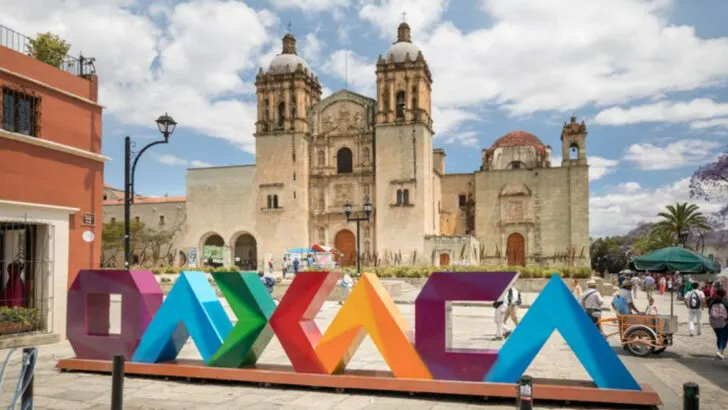Some places around the world have names that seem tailor-made to trip up American tongues. From a historic Massachusetts city to a scenic English county, these locales often leave visitors tongue-tied. Here’s a list of ten places where the local pronunciation diverges sharply from what outsiders might expect, often leading to amusing misunderstandings.
Worcester, Massachusetts
In Worcester, Massachusetts, the name often leaves newcomers puzzled. Despite its spelling, locals say “WOO-ster,” dropping the middle syllables that outsiders might try to pronounce. Known for its historic brick streets and bustling college-town atmosphere, Worcester embraces its unique pronunciation.
Visitors might see signs and local businesses that play on this quirk, adding to the city’s charm. Expect to hear the correct pronunciation in lively conversations in coffee shops and at community events. Worcester’s blend of tradition and modernity makes it a memorable stop for anyone exploring New England.
Des Moines, Iowa
Des Moines, Iowa, may sound straightforward to locals, but outsiders often stumble over it. Pronounced “duh-MOIN,” the city hides its complexity behind a simple two-syllable name. Known for its vibrant farmers’ markets and rich Midwestern culture, Des Moines is a heartland gem.
Visitors might hear the correct pronunciation on local news or radio stations. Whether enjoying sweet corn at a festival or strolling through art fairs, the rhythm of “duh-MOIN” becomes part of the experience. Embrace the local cadence, and the city’s warm hospitality will soon feel like home.
Arkansas
Arkansas, pronounced “AR-kan-saw,” is a state where the spelling often misleads. Unlike “Kansas,” it ends with an “aw” sound, reflecting its unique identity. Known for its lush landscapes and rich history, Arkansas offers a blend of natural beauty and cultural heritage.
Drive through quaint towns, and you’ll find license plates and local slogans reinforcing the correct pronunciation. From hiking trails to historic sites, the state’s charm lies in its authenticity. Embrace the local way of saying “Arkansas,” and the state will reveal its wonders to you.
La Jolla, California
La Jolla, California, is a place where Spanish meets English, creating pronunciation puzzles. Locals say “la HOY-uh,” emphasizing the “y” sound that tourists often miss. Known for its stunning coastline and artistic vibe, La Jolla is a coastal paradise.
From cliffs to tide pools, the natural beauty here is matched by cultural richness. Visitors may hear locals using the correct pronunciation in boutique shops and art galleries. Let the melodic sound of “la HOY-uh” guide you through this serene seaside escape.
Versailles, Kentucky
Versailles in Kentucky offers a twist on the familiar French name. Pronounced “ver-SALES,” it reflects local tradition rather than European elegance. This quaint town is filled with Southern charm and historical significance.
Visitors often attempt the French pronunciation but soon adapt to the local sound. The town square, filled with diners and annual events, showcases the community’s unique identity. As you explore historic sites and enjoy local cuisine, “ver-SALES” becomes a friendly refrain, embodying the area’s character.
Tucson, Arizona
In Tucson, Arizona, the name tempts people to insert a hard “k” sound. Locals pronounce it “TOO-sahn,” creating a smooth, flowing cadence. Known for its desert beauty and cultural diversity, Tucson is a city of contrasts.
Visitors might hear the correct pronunciation from park rangers or on traffic signs. Whether exploring saguaro forests or attending local festivals, the rhythm of “TOO-sahn” becomes part of the adventure. Embrace the local way of speaking, and Tucson’s vibrant spirit will captivate you.
New Orleans, Louisiana
New Orleans, Louisiana, with its multiple pronunciations, often leaves visitors guessing. Local versions like “NOO-or-linz” or “N’awlins” capture the city’s lively essence. Known for jazz music and culinary delights, New Orleans is a sensory feast.
Visitors might hear these variations from street performers or in bustling markets. Whether savoring a spicy po-boy or dancing to a brass band, the local pronunciation becomes part of the fun. Embrace the city’s unique sounds, and its vibrant culture will resonate with you.
Reykjavík, Iceland
Reykjavík, Iceland, presents a challenge for English speakers with its Icelandic sounds. Locals say “RAYK-yah-veek,” emphasizing a shorter, more fluid pronunciation. The city, with its colorful buildings and rich history, offers a captivating blend of tradition and modernity.
Visitors might catch the local cadence in cozy cafés or during guided tours. From geothermal pools to artistic festivals, Reykjavík’s charm is undeniable. Embrace the Icelandic rhythm, and the city’s unique character will unfold before you, inviting endless exploration.
Oaxaca, Mexico
Oaxaca, Mexico, with its Spanish phonetics, often confounds English speakers. Locals pronounce it “Wah-HAH-kah,” favoring a smooth, flowing sound. Known for its vibrant markets and rich culinary scene, Oaxaca is a feast for the senses.
Visitors might hear the correct pronunciation from street vendors or in bustling plazas. Whether savoring mole or exploring ancient ruins, the local way of speaking enhances the experience. Let “Wah-HAH-kah” guide your journey through this colorful, spirited region.
Leicester, England
Leicester, England, often surprises with its clipped pronunciation: “LES-ter.” Visitors frequently try to say “Lie-ces-ter,” but locals drop the middle letters. Known for its rich history and modern vibrancy, Leicester is a city of contrasts.
Visitors might hear the local pronunciation in lively pubs or on train announcements. From historic sites to cultural festivals, “LES-ter” becomes a familiar refrain. Embrace the local way of speaking, and Leicester’s charm will captivate you, revealing layers of history and contemporary life.

